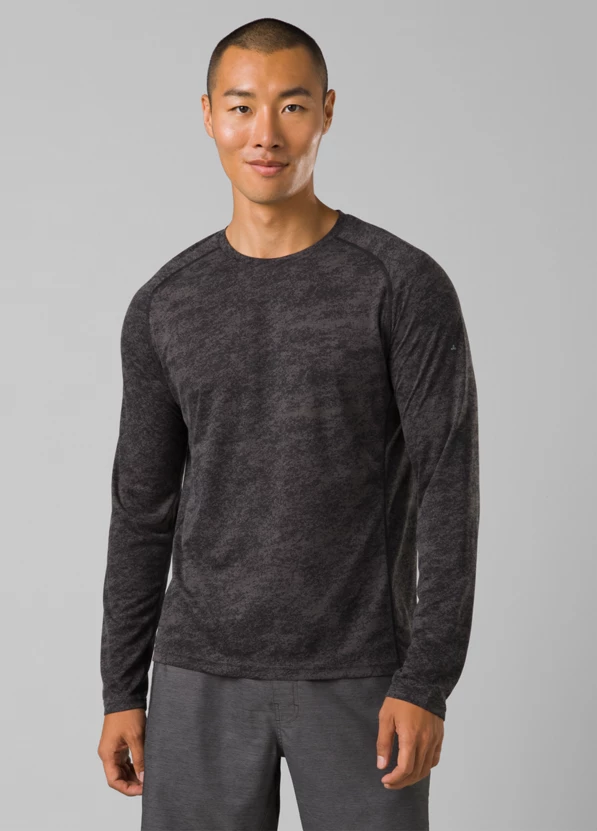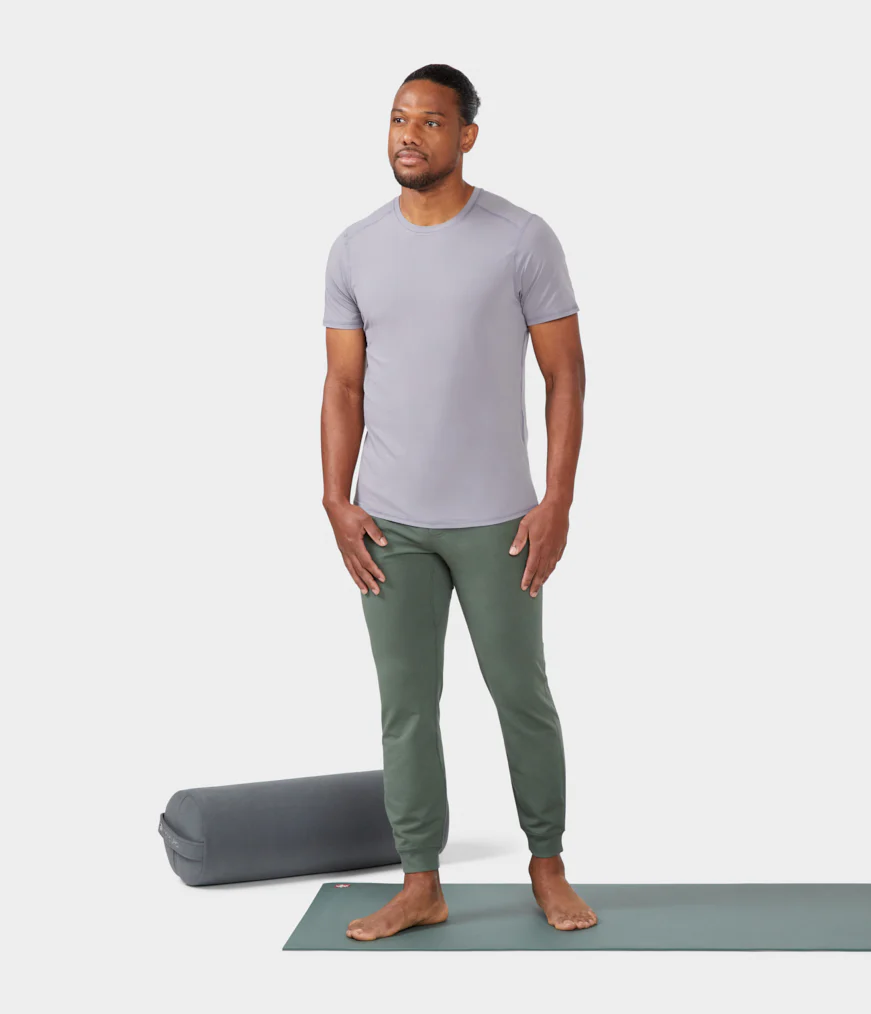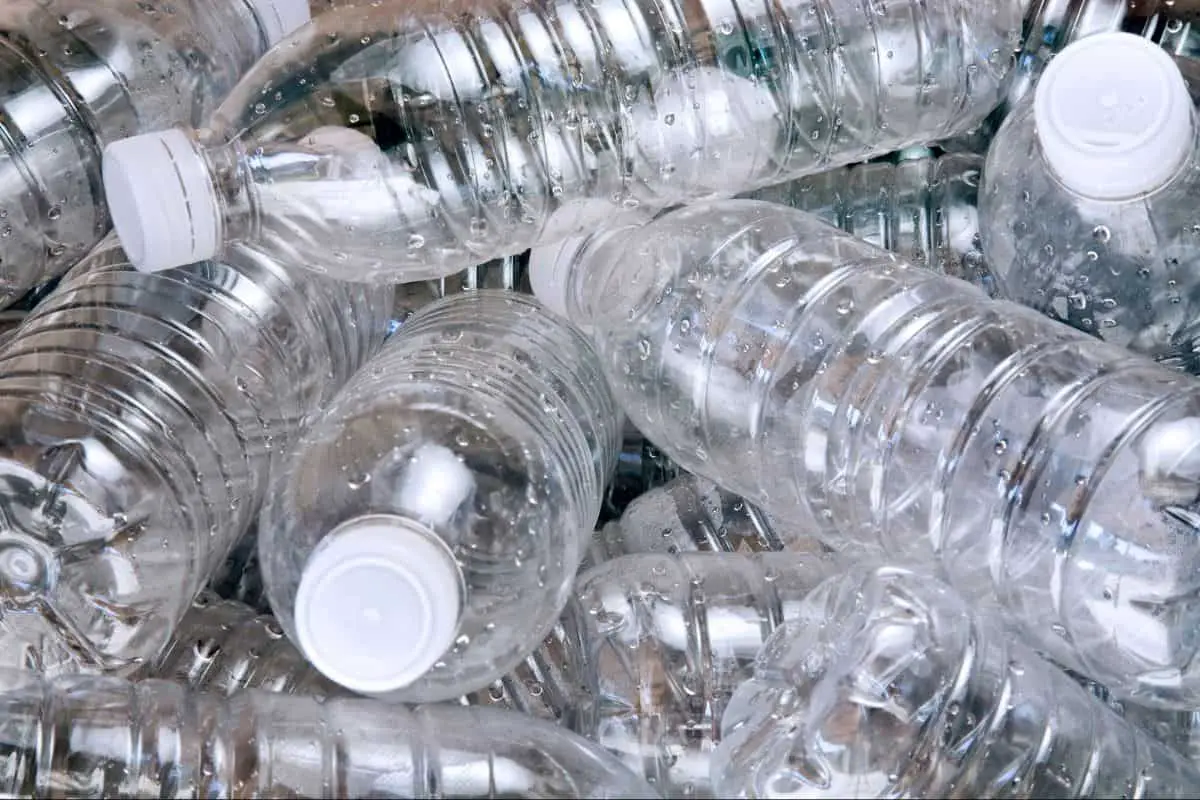Quick Links
What is Repreve recycled polyester?
When it comes to creating a more sustainable world, Repreve recycled polyester is at the forefront of the revolution. This ingenious material, developed by Unifi Inc., is transforming how we think about fashion and athletic clothing.
The raw material sourcing for this fabric involves an innovative process that turns post-consumer plastic waste into recycled fibers, breathing new life into what was once discarded. These fibers are then spun into a high-quality yarn ideal for use in textiles.
The recycled chip, which forms the basis of Repreve recycled fabric, originates mainly from discarded plastic bottles. In fact, by transforming this waste into usable material, REPREVE has become instrumental in reducing landfill mass and ocean pollution.
Now envision that tens of thousands of tons of these bottles being repurposed every year to create a considerable percentage of the world’s polyester and nylon fabric annually. Repreve is not just revolutionizing raw material sourcing through its unique recycling process but also adding value to the end product with significant performance benefits.
Thanks to its unique composition, Repreve fiber provides durability and comfort similar to virgin polyester but with less environmental impact. Furthermore, Repreve fabrics are wrinkle-resistant and incredibly versatile—qualities that have made them favorites among some of the world’s leading brands.
Interestingly enough, converting plastic waste into a new wonder fabric isn’t just suitable for cleaning up our planet—it also helps reduce carbon emissions significantly compared to traditional manufacturing operations for virgin polyester fiber production. By utilizing existing materials instead of newly extracted resources, REPREVE mitigates much of the greenhouse gas emissions associated with raw goods extraction and processing—a win-win for manufacturers looking for more sustainable alternatives and our planet feeling the brunt impacts of excessive carbon emissions.
How is Repreve fabric made?
Delving into the heart of the matter, let’s illuminate how REPREVE fabric is made. The journey begins with recycled plastic bottles, a significant contributor to waste in our society.
These bottles are collected, cleaned and chopped into tiny flakes. Interestingly, it’s not just post-consumer waste that contributes to this process but also pre-consumer waste; remnants discarded during manufacturing operations find a new lease on life here.
These plastic flakes then undergo a transformative process, melting down and extruding to form robust and durable polyester fibers. The resulting fiber is of the same high quality as virgin fiber textiles.
The difference? The product’s sustainable sourcing and eco-friendly footprint sets it apart.
To ensure the integrity of their recycled content claims, Unifi manufactures Repreve in a way that meets the stringent OEKO-TEX Standard 100 certification requirements. This third-party certification guarantees that harmful substances cannot be found in their textile fabrics or throughout their manufacturing operations—providing peace of mind for those who care about what they wear.
The finished product is then spun into yarn and used by many brands you might already know and love for fashion clothing items such as T-shirts, jackets, pants and even swimsuits! By choosing REPREVE over natural fibers or non-recycled alternatives, these fashion houses underscore their commitment to style and sustainability—a commendable stance in today’s fast-fashion culture.
A Brief Note on Polyester
Before we dive deeper into the world of REPREVE, let’s take a brief detour to understand the material from which it originates – polyester. We’ve all seen this term pop up in garment labels, but what exactly is it?
Well, polyester is a synthetic fiber derived from petroleum. It’s trendy owing to its durability, wrinkle-resistant properties, and cost-effectiveness.
However, as you can imagine, being petroleum-based means that it doesn’t exactly win any brownie points when it comes to environmental friendliness. That’s where recycled plastic steps onto the scene.
Recycled plastic bottles turn into high-quality REPREVE recycled fiber, offering alternatives to petroleum-based polyester.
A material that not only diverts plastic waste from landfills but also significantly reduces greenhouse gas emissions compared to virgin polyester production. So why does this matter?
Because each year, millions of tons of plastic waste clutter our planet and natural resources are depleted at an alarming rate to produce virgin fibers. The global adoption of more sustainable practices like creating and using REPREVE can significantly mitigate these problems.
A bonus is that using less energy compared to traditional manufacturing methods conserves enough energy to power numerous homes for an entire year! Now let’s talk about performance benefits because they’re certainly not lacking here!
Compared with traditional polyester fiber, REPREVE offers comparable (if not superior) qualities such as wrinkle resistance and durability but with a significantly lower environmental impact. This has made it increasingly appealing to many brands producing athletic and fashion clothing who want their products to reflect sustainability without compromising quality or style.
I should mention that REPREVE aligns with international standards for recycled content claims, such as the Global Recycled Standard (GRS). This further validates its standing as an ideal choice for eco-conscious consumers who demand transparency and authenticity from the brands they support.
How to care for Repreve fabric
Caring for Repreve fabric is incredibly easy. Not only is this material high-quality and durable, but it also boasts wrinkle-resistant qualities.
Since it is a material made from synthetic fiber, washing it in the Guppyfriend or another washing bag is best recommended to prevent microfibers from being washed into the sea. Additionally, a washing bag extends the life of your garments as fewer fibers break during the washing process.
Learn more about microfibers here.
On the other hand, when drying your Repreve clothing, air-drying is recommended over machine-drying to extend its lifespan. This reinforces another layer of sustainable practice by reducing appliance energy usage, ultimately contributing less to greenhouse gas emissions.
Using recycled materials such as post-consumer single-use plastics in its raw material sourcing gives this fabric an edge in sustainability over traditional polyester fabrics.
It’s not just about reusing materials; it’s also about transforming harmful waste into something beautiful and functional. The transition from destruction to wearable involves scientifically certified systems that ensure safety and functionality.
Repreve has set a new standard in the apparel industry by pushing for more sustainable alternatives to traditional manufacturing operations, which often involve wasteful practices and harmful raw materials. This transformation has been recognized through third-party certification that verifies its eco-friendly processes.
Here are some examples of brands using Repreve
1. Patagonia

Patagonia is committed to creating innovative and superior products. They use various recycled materials, including Repreve, in their clothing line.
2. Tentree

Tentree has partnered with REPREVE® to transform PET bottles into high-quality polyester fibers. Their selection of activewear made with these fibers is impressive.
3. Prana

Prana is an excellent example of a brand that does more than just employ sustainable materials such as Repreve in their creations. They go a step further, blending forward-thinking eco-conscious practices with a keen sense of style and aesthetics.
In essence, Prana Repreve and elevates it to new levels of visual appeal, showcasing that sustainability and-forward design can indeed coexist harmoniously.
4. Manduka

Well-known in the Yoga and Sports industry, Manduka has established its reputable name by conscientiously integrating numerous recycled fibers into their products.
Their commitment to incorporating these sustainable materials reflects their dedication to environmental preservation and sets a high standard within their sector.
5. Outerknown

Outerrknown, the clothing label owned by Kelly Slater, is exploring the use of recycled polyester and nylon in the production of its sustainable swimwear collection.
Related: The best 8 organic yoga clothing for him and her
Performance Benefits of Repreve
Repreve, a name fast becoming synonymous with sustainability in the textile industry, is a high-performance fiber derived from recycled materials. This innovative fabric, embraced by the world’s leading brands, offers an intriguing blend of performance and environmental benefits.
Its creation process involves transforming post-consumer plastic and industrial waste into raw materials that are then woven into polyester and nylon fabric annually. The result?
A sustainable fiber that doesn’t compromise on strength or versatility.

But how sustainable is Repreve?
REPREVE is a sustainable and eco-friendly fiber made from recycled plastic bottles. Here are some reasons why REPREVE is considered sustainable:
REPREVE is made from recycled plastic bottles, which reduces the amount of plastic waste in landfills and oceans
REPREVE uses less energy and water to produce than virgin polyester
REPREVE reduces greenhouse gas emissions by using recycled materials instead of pure material
REPREVE is traceable and certifiable, which means that brands can verify the sustainability of their products, and consumers can trust that they are making a positive purchase
Many brands around the world use REPREVE to create sustainable and eco-friendly products.
This eco-friendly fabric is superior in comfort, durability, and versatility. Top brands are increasingly gravitating towards this sustainable alternative due to these attributes plus its warm embrace by consumers who value its ethos of conservationism.
Comparison between Repreve Fabric and Virgin Polyester
When it comes to polyester-based fabrics, Repreve offers a more sustainable alternative to virgin polyester. Virgin polyester is derived from non-renewable resources such as petroleum, while Repreve is created from recycled plastic bottles.
By choosing Repreve fabric, we can significantly reduce the carbon footprint associated with the fashion industry. Repreve recycled fiber and fabric also boast similar qualities to virgin polyester, such as durability, wrinkle resistance, and moisture-wicking properties.
Environmental impact of Repreve
The positive environmental impact of Repreve is indisputable and profound. Produced from discarded materials that would otherwise contribute to landfill waste, Repreve recycled fiber is a shining beacon of sustainability in an industry often criticized for its environmental footprint.
This innovative process significantly reduces the volume of virgin fiber required by transforming polyester waste, including post-industrial waste and used plastic bottles, into high-quality material for the fashion industry. This results in fewer greenhouse gases being released into our atmosphere, a benefit we can all appreciate.
The repreve recycled fiber goes through a texturing process that adds bulk to the yarn and enhances its performance characteristics, such as wrinkle-resistant – an appealing feature for many brands. The world’s leading brands are increasingly embracing sustainable alternatives like Repreve because it allows them to make recycled content claims, which are becoming ever more critical in today’s environmentally-conscious marketplace.
Moreover, another significant aspect of repreve fabric’s environmental impact lies in its manufacturing process, which adheres strictly to specific standards to reduce harmful substances. While polyester fabrics have often been associated with ecological harm due to their non-biodegradable nature and use of petrochemicals in production, Repreve recycled fiber breaks this stereotype through adherence to stringent guidelines.
The OEKO-TEX Standard 100 certification proves that Repreve goes out of its way to ensure its products are free from harmful substances. So what does this mean?
Well, for starters, it means that when you buy clothing made from repreve fabric, you get high-quality material and contribute towards saving our environment by supporting an initiative that repurposes plastic waste into practical and functional products. In essence, Repreve makes it possible for us to enjoy the benefits of synthetic fabrics – think durability, versatility and affordability – without compromising on our commitment to preserving Mother Earth.
Repreve Is A Major Player In the Growth of Sustainable Apparel
Repreve is making its indelible mark as a significant player in the sustainable apparel market. This recycled polyester brand name has revolutionized the manufacturing process and changed how leading brands perceive their environmental impact.
Before its advent, post-industrial waste and single-use plastics had been a bane to our land and water resources. However, with this innovative approach of converting such waste into high-performance fibers, companies can offer stylish clothing and outdoor gear while significantly reducing greenhouse gas emissions.
Discarded materials such as plastic bottles and industrial waste get converted into raw materials for producing recycled performance fiber. This eco-friendly method emits fewer greenhouse gases than traditional processes of making polyester fibers.
The fact that they can repurpose millions of plastic bottles into a valuable resource each year is worth celebrating. Moreover, it’s not just about being environmentally conscious; it’s also about delivering quality products with multiple performance benefits.
Conclusion
In the spinning loom of our ever-advancing world, Repreve fabric has emerged as a high-quality material with an eco-friendly twist. We see a brilliant example of innovation in the textile industry by reallocating resources that would typically be considered waste – such as post-industrial waste and single-use plastics – to produce recycled performance fiber. Unifi, the company that manufactures Repreve, has revolutionized the supply chain and made it possible for leading brands to embrace sustainability and incorporate recycled content into their offerings.
Repreve fabric is essentially repurposed polyester fibers and nylon fabric made from recycled plastic bottles. This is a massive stride towards reducing reliance on virgin wool and minimizing greenhouse gas emissions caused by traditional polyester production methods.
With every yard of fabric produced, we are not just generating high-quality material for the apparel industry but also reducing our ecological footprint. There’s no denying that Repreve fiber holds significant promise for a more sustainable future in fashion.
The texturing process employed to create this innovative material results in a durable and versatile product suitable for everything from garments to home furnishings. The environmental benefits cannot be underestimated either; fewer discarded plastics mean less pollution in our ecosystems and lesser dependency on non-renewable resources.
So next time you buy apparel or home products made from polyester or nylon fabric, consider if it’s made from Repreve polyester fiber; you’ll be making an intelligent choice both stylistically and ethically. Let’s endeavor to shift our consumption habits towards such recycled fibers – they represent a tangible step toward redefining sustainability within our society.
It seems fitting that we end on an optimistic note: A world where virgin fiber becomes obsolete may not be too far off into the future. Every day, companies like Unifi transform polyester waste into something beautiful — fashioning style and substance from what was once considered trash.
Source:
